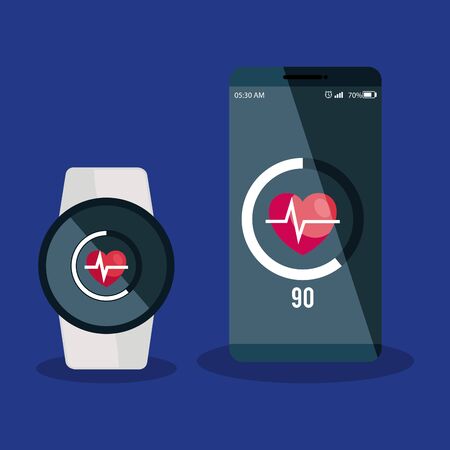Understanding Back Pain: Common Causes and Types
Back pain is an increasingly common concern for many people across the UK, affecting individuals from all walks of life. Whether you’re a young professional working long hours at a desk in London or an older adult enjoying retirement in the countryside, back discomfort can strike at any time. Among the most prevalent triggers are lifestyle habits such as prolonged sitting, poor posture, and insufficient physical activity, which can all contribute to aches and stiffness. For those with physically demanding jobs—such as NHS staff, delivery drivers, or tradespeople—repetitive movements and heavy lifting may also play a part. Furthermore, age-related changes like wear and tear on the spine, arthritis, or osteoporosis can make back pain more likely as we grow older. Understanding these common causes helps you take proactive steps towards better back health and know when it might be wise to seek support from your local GP or physiotherapist.
2. Self-Care and Natural Remedies at Home
For many in the UK, gentle self-care can be an effective way to manage mild back pain before seeking professional help. Taking a natural approach at home not only supports your body’s healing process, but also encourages long-term wellbeing. Below are some practical strategies to soothe discomfort and promote recovery:
Gentle Movement and Stretching
Staying active is key—prolonged bed rest can often do more harm than good. Simple movements such as walking or gentle stretching can help keep your back muscles supple without overexertion. Consider incorporating these activities into your daily routine:
| Activity | How Often |
|---|---|
| Short walks (10-15 mins) | Twice daily |
| Light stretching | Morning & evening |
| Pilates or yoga (gentle level) | 2-3 times per week |
Mindful Posture
Adopting mindful posture throughout the day can make a significant difference. Whether you’re working from home or commuting, try to:
- Sit with both feet flat on the floor and knees at hip level.
- Avoid slouching—use a small cushion for lower back support if needed.
- Take regular breaks from sitting to stand, stretch, or move about.
Wholesome Dietary Tips
Nourishing your body with balanced, anti-inflammatory foods may support the healing of minor aches and pains. Consider adding these British staples to your menu:
| Food Group | Examples |
|---|---|
| Oily fish | Mackerel, salmon, sardines |
| Wholegrains | Porridge oats, wholemeal bread |
| Fruits & veg | Berries, leafy greens, carrots |
Hydration Matters
Don’t forget to keep hydrated with plenty of water or herbal teas—staying well-hydrated helps maintain spinal health.
When to Rest and When to Move?
If your pain worsens with activity or you feel unsure, listen to your body and rest as needed. However, gentle movement is generally recommended over complete rest for most mild cases.

3. When Should You See Your Local GP?
Back pain is often manageable with simple self-care at home, but there are times when seeing your local GP becomes essential. If your back pain has lasted for more than a few weeks or is getting progressively worse, it’s a good idea to book an appointment at your neighbourhood surgery. Pay particular attention to symptoms that don’t improve with rest or over-the-counter remedies—this persistent discomfort may require professional assessment.
There are also certain warning signs you shouldn’t ignore. If you experience severe pain that disrupts your sleep or daily activities, sudden weakness or numbness in your legs, unexplained weight loss, or any changes to your bladder or bowel habits, these could signal something more serious. In such cases, it’s important to see your GP promptly so they can rule out underlying conditions and guide you towards the right treatment path.
Remember, GPs are well-versed in assessing back pain and can offer reassurance as well as practical advice. They may suggest investigations if needed, refer you to a physiotherapist, or recommend other support services available within the NHS. Trusting your instincts and seeking help when symptoms persist ensures you stay on top of your health and get back to feeling your best.
4. How a Chartered Physiotherapist Can Help
When managing back pain, consulting a chartered physiotherapist can make a significant difference to your recovery and long-term wellbeing. Physiotherapists are trained healthcare professionals registered with the Health and Care Professions Council (HCPC), ensuring they meet rigorous UK standards. Their approach centres on holistic assessment and evidence-based interventions tailored to your unique needs.
The Physiotherapy Approach
A physiotherapist will begin by conducting a thorough assessment of your symptoms, lifestyle, and medical history. This helps them identify the underlying causes of your back pain, whether it’s related to posture, muscle weakness, or repetitive strain. They then design a personalised treatment plan that may include:
- Manual therapy to improve mobility
- Guided exercise programmes for strength and flexibility
- Education about posture and movement habits
- Pain management strategies using natural methods
Benefits of Tailored Exercises and Professional Advice
One of the key benefits of seeing a physiotherapist is access to exercises that are specifically chosen for your condition. Unlike generic routines found online, these exercises are adapted as you progress, helping you build resilience safely and effectively. Regular sessions provide opportunities for ongoing guidance, motivation, and adjustments to your programme.
How Physiotherapy Supports Long-Term Wellbeing
| Benefit | Description |
|---|---|
| Pain Reduction | Hands-on techniques and targeted movements help ease discomfort naturally. |
| Improved Mobility | Gradual stretching and strengthening restore range of motion for everyday activities. |
| Personalised Education | Learn how to protect your back through daily habits and ergonomic adjustments at home or work. |
| Prevention of Recurrence | Sustainable strategies reduce the risk of future episodes by addressing root causes. |
| Mental Wellbeing | Physical activity and support can lift mood and confidence during recovery. |
Your Local Support Network
Many GP surgeries in the UK work closely with local physiotherapists, making referrals straightforward if needed. Some areas also offer self-referral options, allowing you to access physiotherapy without seeing your GP first. Seeking timely advice from a chartered physiotherapist not only helps manage current symptoms but empowers you with tools for lifelong back health in tune with your individual lifestyle.
5. Working with the NHS: What to Expect
If you’re struggling with persistent back pain, it’s reassuring to know that the NHS has a well-established pathway to help you find relief and support. Understanding what to expect can make the process feel less daunting and help you make informed decisions about your care.
The Typical NHS Pathway for Back Pain
Your journey often starts with an appointment at your local GP surgery. Your GP will discuss your symptoms, medical history, and may carry out a physical examination. In many cases, they’ll recommend self-care advice, gentle movement, or over-the-counter pain relief as first steps. If your pain is more severe or not improving after a few weeks, your GP might refer you to a physiotherapist or a specialist clinic.
Referrals and Waiting Times
Referral times can vary depending on your local area and the severity of your symptoms. For routine cases, there might be a waiting period before you see a physiotherapist or receive specialist input. However, if your GP suspects something more serious—like nerve involvement—they’ll fast-track your referral for further tests or specialist assessment. Many areas also now offer direct access to physiotherapy without needing a GP referral, which can speed up support for musculoskeletal issues.
Multidisciplinary Support
One of the strengths of the NHS is its holistic approach to health. You may be supported by a multidisciplinary team that could include GPs, physiotherapists, pain specialists, and sometimes occupational therapists or psychologists if chronic pain affects your daily life. This team-based approach ensures that both the physical and emotional aspects of back pain are addressed, helping you return to comfort and wellbeing as naturally as possible.
6. Supporting Your Recovery with Healthy Habits
Building a resilient back doesn’t stop at the clinic; it’s something you nurture every day through thoughtful choices and routines. By embracing simple lifestyle adjustments, you can complement professional care from your GP or physio and encourage lasting recovery.
Prioritise Gentle Movement
Regular, gentle exercise such as walking, swimming, or yoga helps to keep your back muscles supple and strong. If you’re unsure where to begin, ask your physio for a tailored programme that suits your needs and comfort level.
Mind Your Posture
Whether working from home or in the office, be mindful of your sitting position. Adjust your chair, keep your feet flat on the floor, and take short breaks to stretch. These small changes can make a big difference over time.
Balance Rest and Activity
While rest is important after a flare-up, long periods of inactivity can slow down your recovery. Aim for a balance—listen to your body and gradually reintroduce activity as advised by your healthcare professional.
Nourish Your Body Naturally
A diet rich in whole foods, leafy greens, nuts, and oily fish supports overall health and helps manage inflammation. Staying hydrated is just as crucial; water aids in keeping spinal discs healthy and mobile.
Stress Management Matters
Stress can often exacerbate pain. Try gentle mindfulness techniques or breathing exercises—these not only help calm the mind but also relax tense muscles.
Stay Connected with Professional Support
Your GP or physio is there to guide you on your journey to recovery. Regular check-ins ensure you’re on the right track and allow for adjustments to your plan when needed.
By weaving these natural habits into your daily life, you foster a stronger back and greater wellbeing, marrying self-care with expert support for the best possible outcomes.


